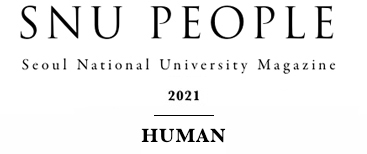Cover
Story
A Better Life Created
with Public Values
Hyuk-sang Sohn (Department of Political Science, Class of 1980)
President, Korea International Cooperation Agency
Ilcheong Yi (Department of Political Science, Class of 1986)
Senior Research Coordinator, UNRISD
South Korea, which was the largest aid recipient of the World Food Program (WFP) in 1964, received $104 million (about 119.4 billion won) worth of aid for a total of 23 projects, including nutritional support, water control, and public works programs, for twenty years until 1984. After fifty years, South Korea joined the Food Assistance Convention in 2018 and is currently providing 50,000 tons of rice every year to three million refugees and immigrants in countries in food crisis, and is the 11th largest WFP donor in the world. As the only country that has become a donor from a beneficiary, what would be the role of South Korea for a better humanity? We met with Hyuk-sang Sohn, President of the Korea International Cooperation Agency (KOICA), which celebrated its 30th anniversary this year, and Dr. Ilcheong Yi, the only Korean at the United Nations Research Institute for Social Development (UNRISD).
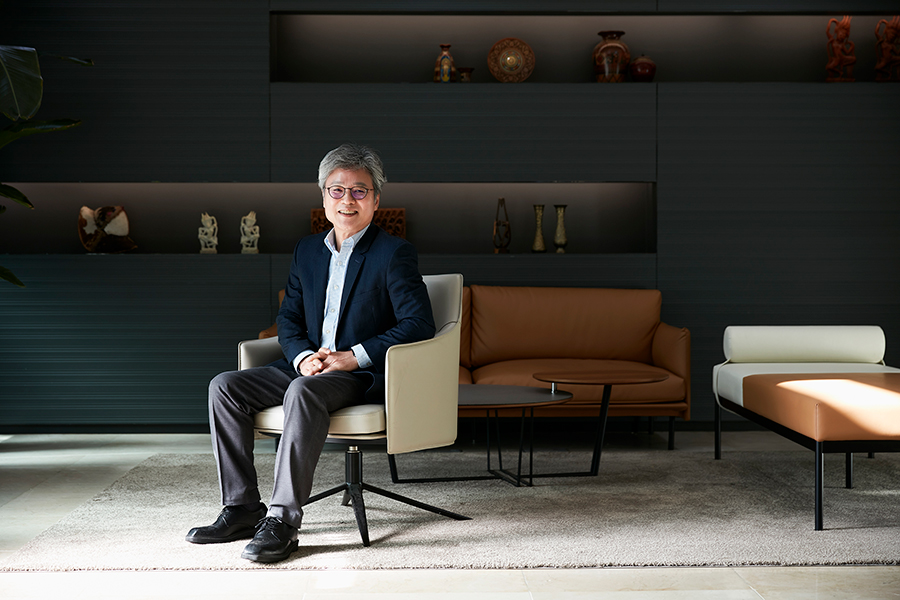
The Eyes of the World on Korea
President Hyuk-sang Sohn: Over the past twenty years, I have witnessed the change in Korea's status in the field while visiting development sites in developing countries. Recently, as Korea's cultural content, including movies, dramas, and K-pop, gained popularity, the eyes of the international community are on how Korea makes decisions on various significant issues. A case in point is that when Korea announced that it would "achieve zero carbon emission (Net-Zero) by 2050" this year, the foreign press gave major coverage to the decision, along with that of Japan and China. South Korea's international status is higher than we think. Especially in international development cooperation, Korea is considered the textbook case. Korea is the first example of a country that transformed itself from one of the poorest nations torn by war into a donor country. It is also the only country whose status has changed from a "developing country" to a "developed country" at the United Nations Conference on Trade and Development (UNCTAD).
Dr. Ilcheong Yi: The world's perspective on Korea's growth has also changed. Before the Asian Financial Crisis that led to the IMF bailout in 1997, international organizations merely considered Korea as a country that achieved rapid economic growth, also called the "Miracle on the Han River," and a country that successfully implemented economic development policies that emphasized efficiency. However, after witnessing how quickly Korea overcame the IMF crisis, the world is now interested in Korea's potential. They are interested in Korea's innovation and transformative way of thinking, which could be found in why a company that used to make a radio focused on semiconductors and how Korea invested in distributing computers at the level of advanced countries in the early 2000s and became an IT powerhouse.
President Hyuk-sang Sohn: I completely agree. More countries are thinking that "they could also do it if they learn from Korea." Let's take an example from the field of development cooperation. KOICA has been receiving requests from the USAID to collaborate on projects through various channels after the Korea-US Summit this May. We have also been receiving requests for cooperation from aid agencies of new developing countries, such as Kazakhstan, and MASHAV, Israel's Agency for International Development Cooperation. On the other hand, when we asked various dignitaries to attend the "14th Seoul ODA International Conference," which was co-hosted by the Ministry of Foreign Affairs and KOICA this September, many of the dignitaries, including Susanna Moorehead, the Chair of OECD's Development Assistance Committee (DAC), have readily agreed to participate. I realized that now Korea has a "convening power."
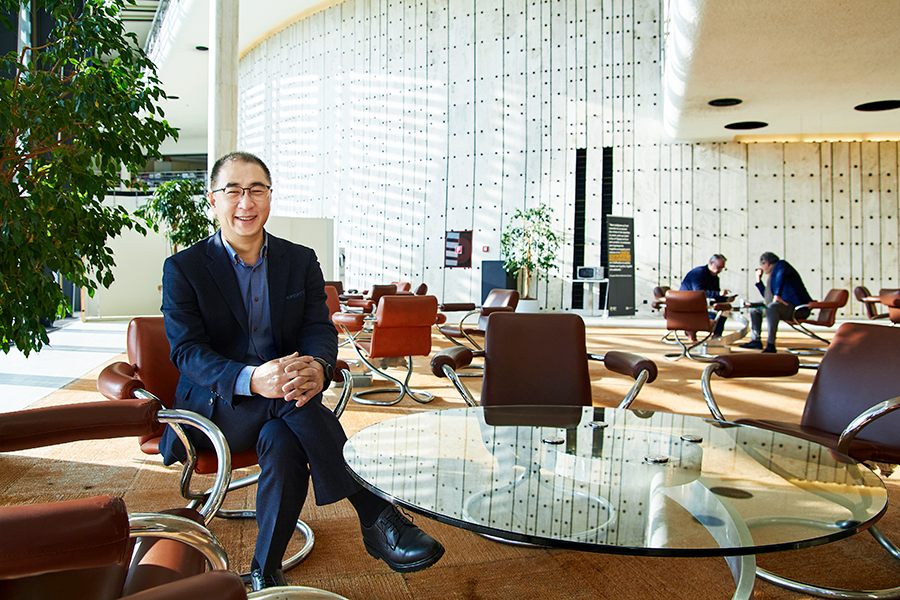
The Power of Small Communities Will Save Humanity
President Hyuk-sang Sohn: Greater interest from the international community also means that we are asked to make more contributions than before. Just as we received international aid to regain our footings amidst the ruins of the Korean War, it is only natural for us to contribute to the international community. Official development assistance and international development cooperation, headed by KOICA, represent such contributions. As we have witnessed through the COVID-19 crisis, we have reached an age when "we cannot be safe alone." You can only secure your safety by helping others stay safe. If Korea's role as a donor grows, the costs and burdens will also increase, necessitating public consensus and endurance. Nevertheless, now that the international community's attention is upon us, more contributions from Korea and more positive reactions from recipient countries will result in a virtuous cycle that strengthens Korea's soft power.
Dr. Ilcheong Yi: I hope that South Korea can play a role in balancing power. The development of developing countries is usually executed in a top-down manner. In addition, policies or systems shared by the world are, at times, based on the nationalism of powerful countries. Some countries are marginalized in this process, and their interests are ignored, thereby deepening the inequality. I hope that Korea could create a space where more countries could express their diverse voices. We already have the experience. The experience of reducing poverty and inequality by transitioning from a developing country to a developed country. I hope that we could go beyond publicizing our experience and assist developing countries by providing advice on establishing and implementing development plans and encouraging them to make their own decisions.
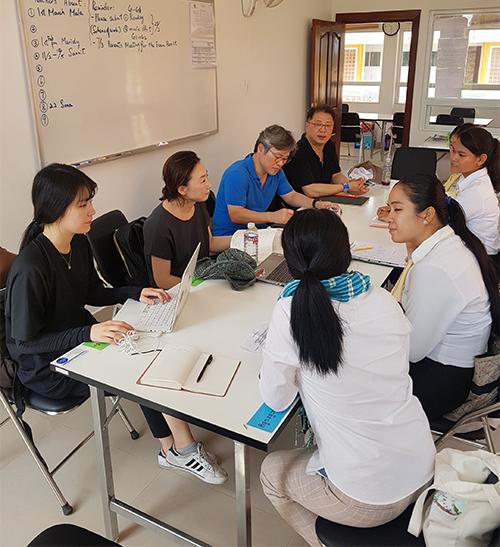
President Hyuk-sang Sohn: What Dr. Yi just mentioned also applies to Korea's role in reaching world peace. Disputes and conflicts are taking place in various corners of the world. South Korea, which has overcome the ruins of the Korean War, may have more experience and know-how than any other country in terms of practical measures for peace. Based on such knowledge, we should take the lead in international development cooperation by finding a way to satisfy the normative aspect of contributing to the prosperity of humanity and world peace and the practical element of pursuing survival and prosperity. Individual citizens that comprise a nation-state should also take an interest in international development cooperation. More interest and participation will lead to a bigger contribution to world peace.
Dr. Ilcheong Yi: I agree with President Sohn. Global issues sometimes feel so vast and unsolvable. But it could be easier if you reconsider it on a personal level. The American anthropologist Margaret Mead once said, "Never doubt that a small group of thoughtful, committed citizens can change the world." Innovative changes will follow if people who share a common idea form a group and have faith in it.
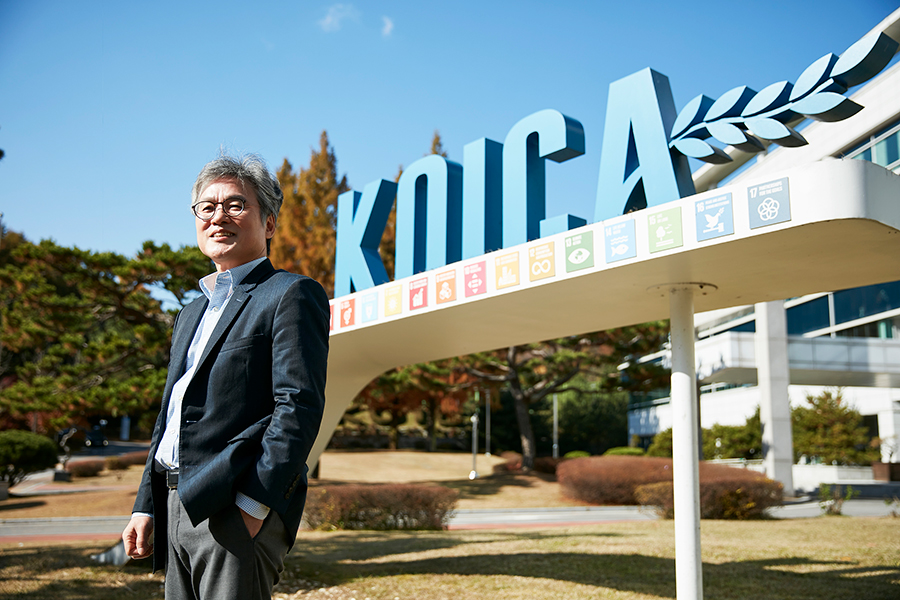
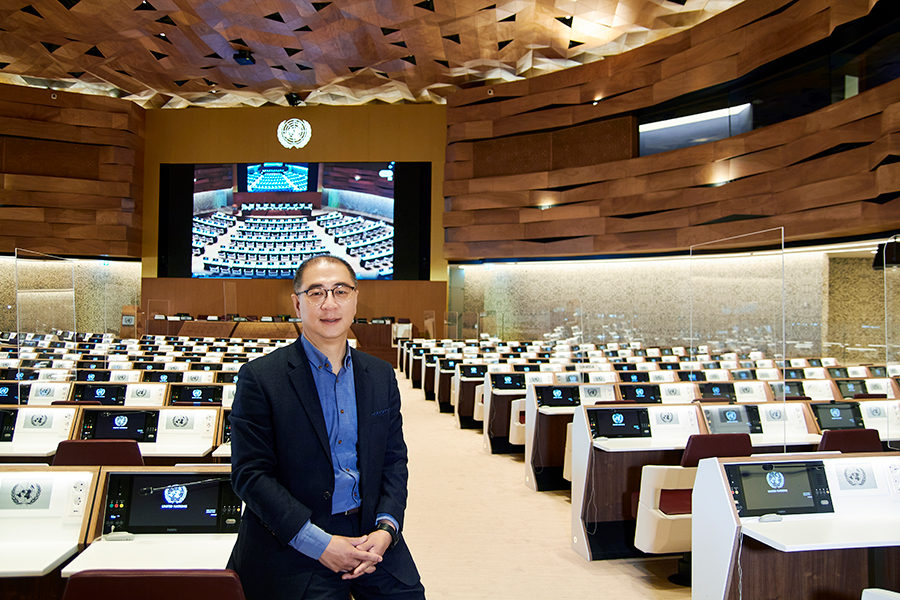
Korea International Cooperation Agency (KOICA)KOICA is a governmental organization established to support the economic and social development of developing countries and enhance the welfare of the poorest countries, based on the technology and experience gained through Korea's economic growth. KOICA, established in 1991 with a budget of 17.4 billion Korean won and six overseas offices, celebrated its 30th anniversary in 2021 with a budget of 972.2 billion Korean won and 44 overseas offices. The size of its ODA is now ranked 15th among the 30 member states of the OECD Development Assistance Committee (DAC).The United Nations Research Institute for Social Development (UNRISD)The Institute's mission is to conduct various research on the development and contribute to the policy discussions and conversations on major issues concerning social development within and outside the UN system. The UNRISD played a pioneering role in developing social indicators based on new development approaches and contributed to broadening the horizons of the development debate. The UNRISD has focused on the issues including the distribution of profit due to economic growth and social changes and the issue of opposing social forces through diverse and comprehensive interdisciplinary approaches.
